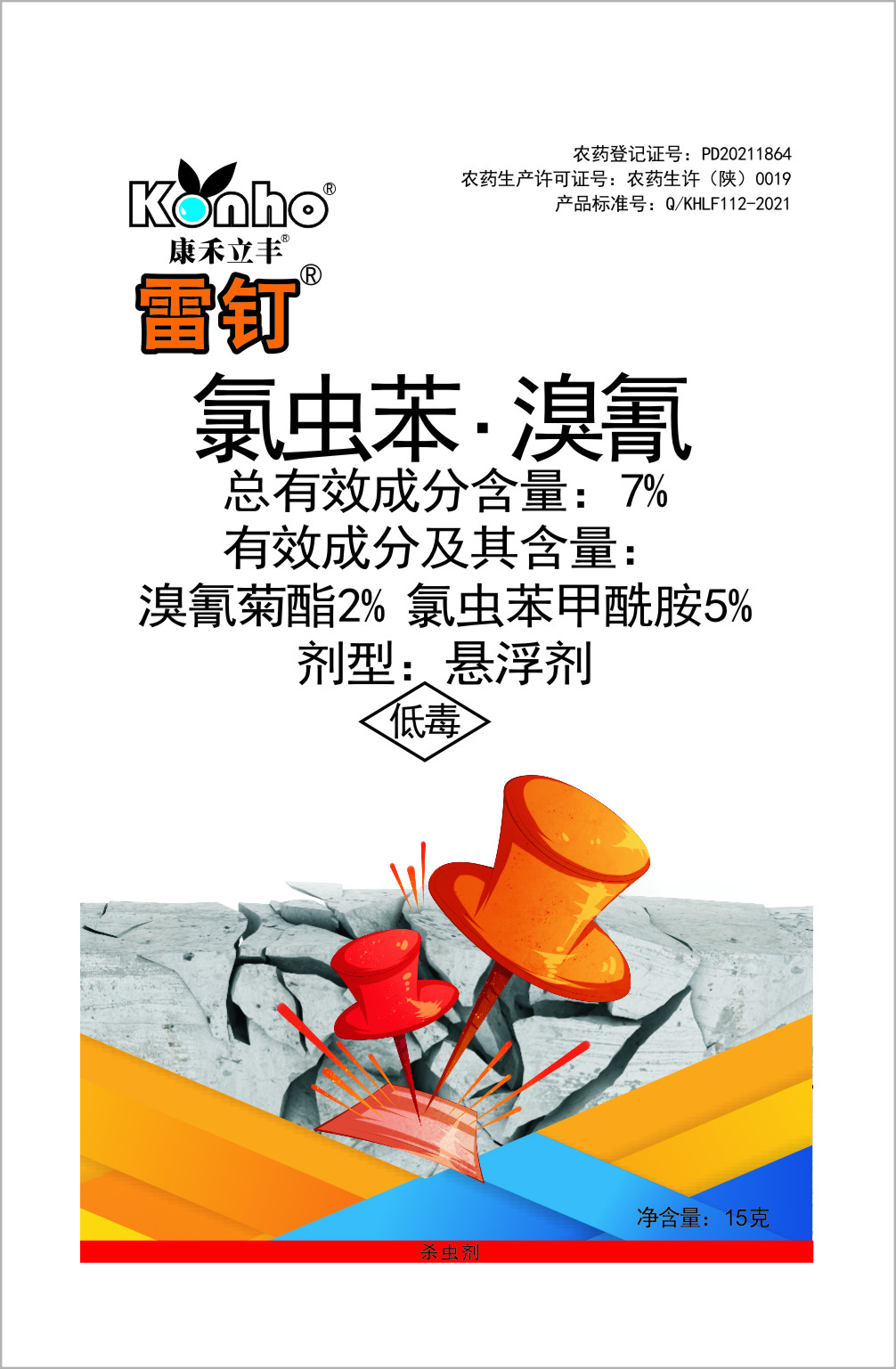Product Features:
- Technological Upgrade: The addition of plant-derived synergistic agents enhances the spreading of the pesticide, facilitating better absorption by crops and delaying the development of insecticide resistance.
- Long-lasting Pest Control: After contact with the pesticide, pests quickly cease feeding, reducing the population of harmful insects and alleviating damage to crops. A single application remains effective for 15-20 days or more, reducing the need for 1-2 conventional applications. It is user-friendly, labor-saving, and itch-free.
- High-purity active imported ingredients ensure greater stability in physical and chemical properties.
Application Method:
| Crops | Targets | Dosage | Method |
| Peach tree | Pear fruit moth | 1000-1500 times | Spray |
| Pear tree | Oriental fruit moth | 1000-1500 times | Spray |
| Citrus | Leaf miner | 1000-1500 times | Spray |
| Cotton | Cotton bollworm | 1000-1500 times | Spray |
| Corn | Corn borer, Fall armyworm | 500-1000 times | Spray |
| Mango | Diamondback moth | 1000-1500 times | Spray |
| Litchi | Fruit borer | 1000-1500 times | Spray |
| Ginger | Ginger Borer | 3000g/ha | Watering |
| Leaf vegetables | Diamondback moth | 500-1000 times | Spray |
Instructions:
- Citrus Leafminer control primarily focuses on prevention. During the spring shoot period, a combination of Imidacloprid/Acetamiprid can be used to control thrips and aphids and prevent Citrus Leafminer. It is recommended to use THUNDER 500 grams diluted in 1000 liters of water for spraying. In the summer to autumn shoot period, when citrus shoots are approximately 2-5 cm, apply every 15 days for two consecutive times to prevent Citrus Leafminer. (Note: During the autumn shoot period, if the orchard shoots are not uniform and both new and mature leaves coexist, and Citrus Leafminer has occurred in mature leaves, it is recommended to combine with 12% Chlorfenapyr+Lufenuron SC for control.)
- For Northern fruit tree borer control, the emphasis is on prevention. Accurate monitoring of pest population within the orchard is crucial for precise pesticide application and control. Taking Pear Psylla (commonly known as shoot-tip borer) as an example, June is a critical period for its control. Adult psyllids lay eggs directly on the fruit surface during this time, and after hatching, nymphs burrow directly into the fruit to feed, causing harm to pear and peach trees and significantly reducing fruit marketability. It is recommended to use THUNDER at a dilution of 1000-1500 times during the peak hatching period to the low-age nymph fruit-boring stage, applying continuously twice at intervals of 10 days. For orchards severely affected by shoot-tip borers, it is advisable to combine with 12% Chlorfenapyr+Lufenuron SC for control to break the generation of this pest and lay the foundation for prevention in the coming year.
- Cotton Bollworm control in cotton focuses primarily on prevention. Spray THUNDER at a dilution of 1000-1500 times on the leaves during the peak hatching period to the low-age nymph stage. In the field, when the pest population and larval age are relatively large, it is recommended to combine with 12% Chlorfenapyr+Lufenuron SC or other insecticides for control.
- For Mango Shoot Borer control, use THUNDER at a dilution of 1000-1500 times during the flowering period. During the bud and flower cluster period, when the webbing of the shoot borer is thick and dense, making it difficult for the spray to penetrate, it is recommended to combine with Chlorfenapyr or DDVP. Apply THUNDER twice at intervals of 7 days, ensuring thorough coverage.
- Lychee Stem Borer control emphasizes prevention. During the flowering period, use THUNDER at a dilution of 1000-1500 times for prevention. During the fruiting period, from the peak hatching period to the low-age nymph boring period, use THUNDER at a dilution of 1000 times along with 12% Chlorfenapyr+Lufenuron SC for comprehensive control.
- For Corn Earworm, Fall Armyworm, armyworm control in corn, it is suggested to apply THUNDER at a dilution of 500-1000 times targeting the corn silks during the peak hatching period to the second-instar nymph stage. If the pest population is large in the field, it is recommended to combine with 12% Chlorfenapyr+Lufenuron SC or other insecticides for control.

